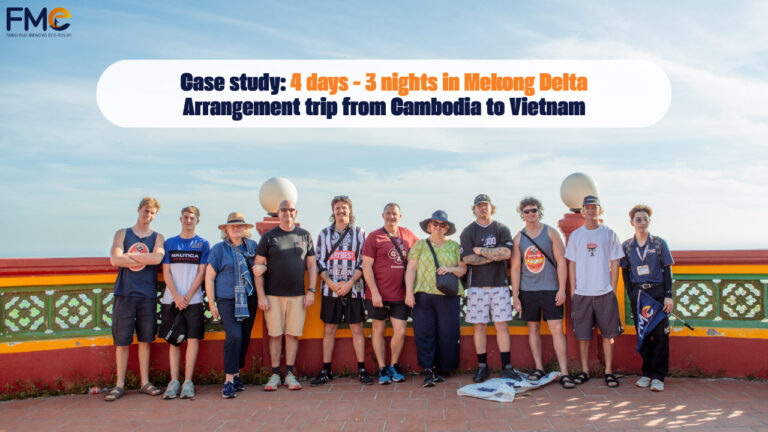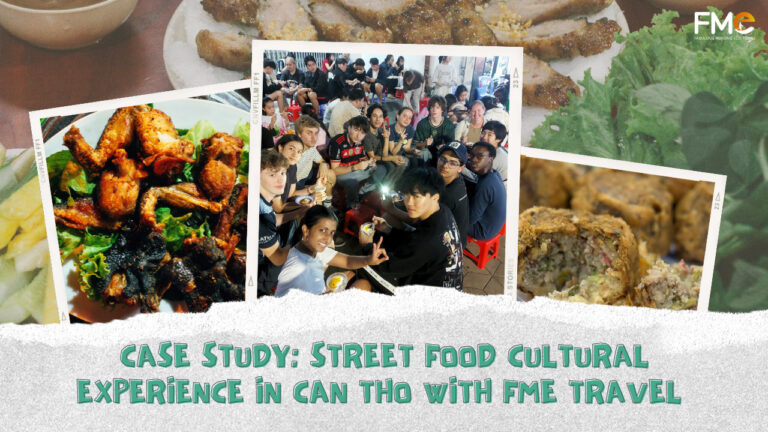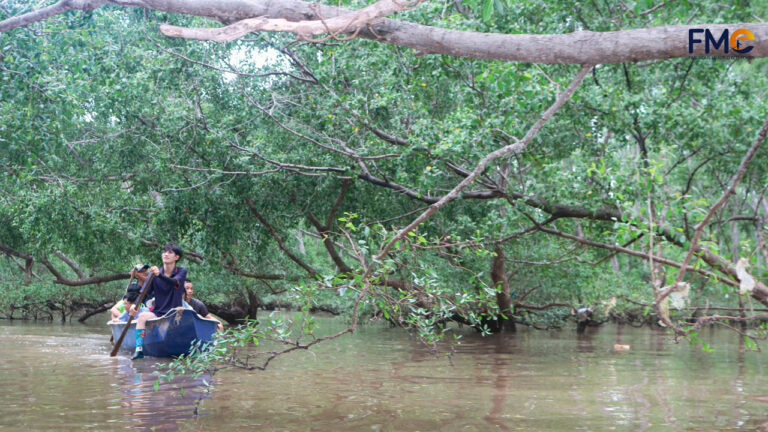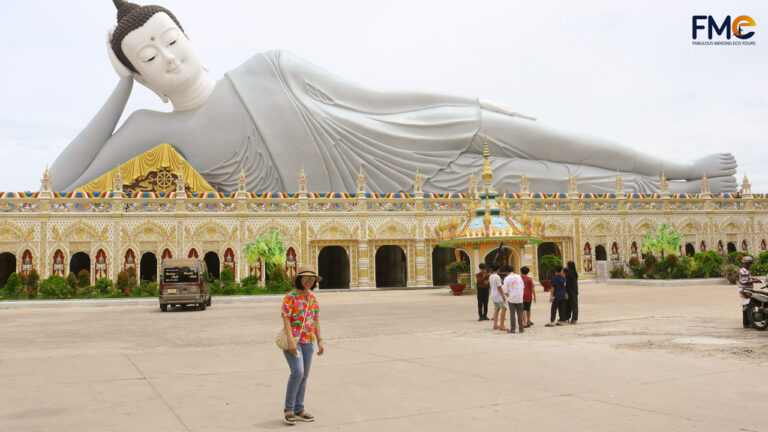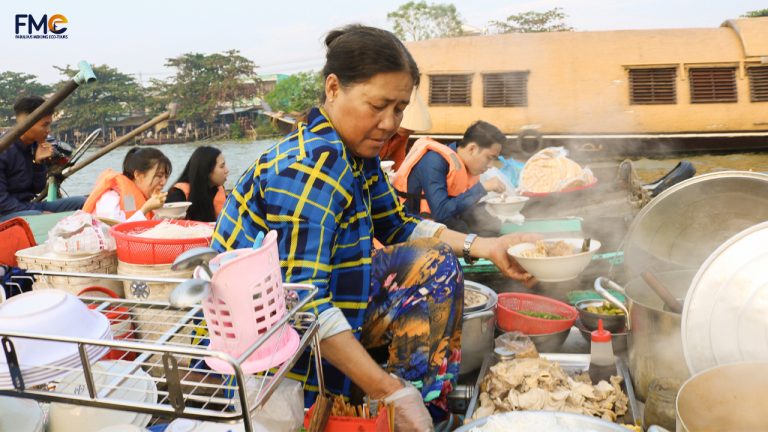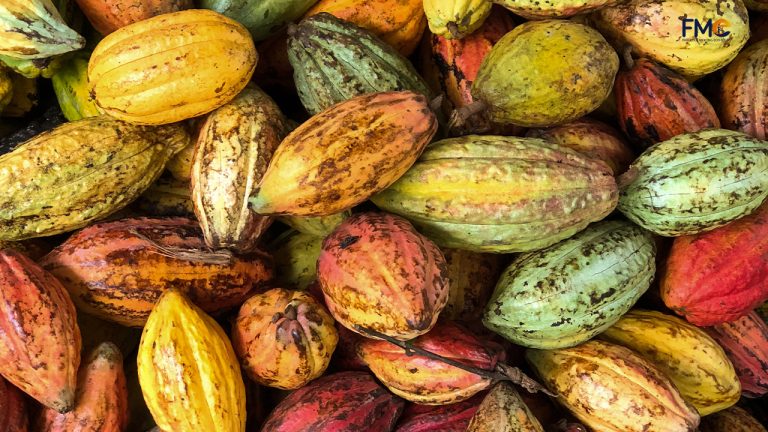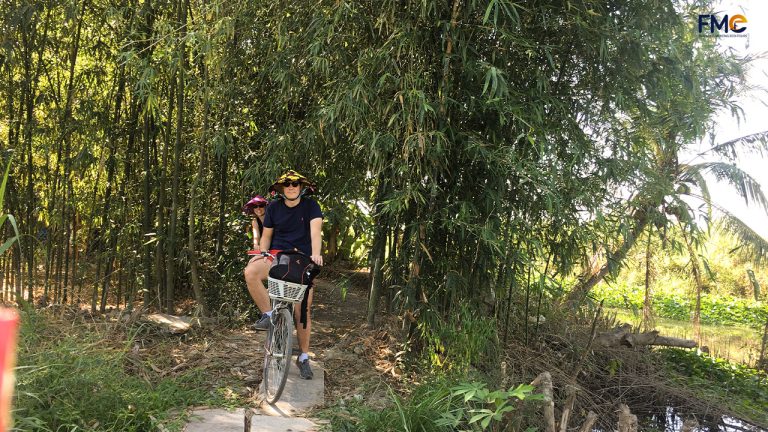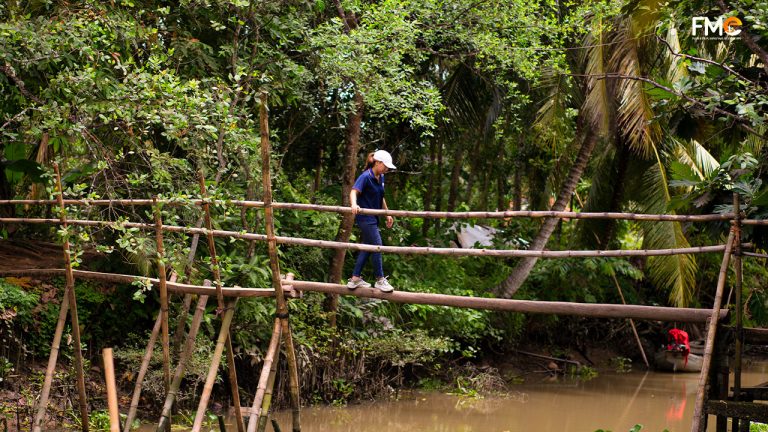The Holy Mother temple in An Giang (Miếu Bà Chúa Xứ)
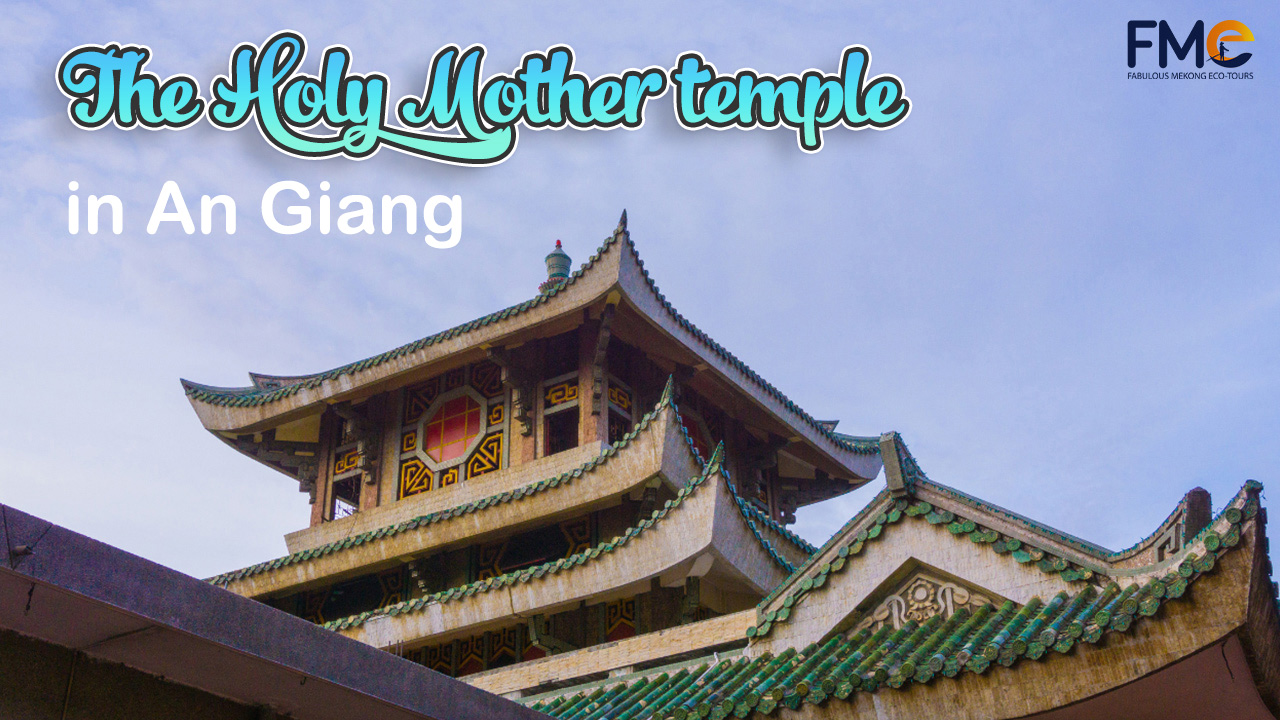
The Mekong Delta in Vietnam is renowned for its stunning natural scenery, fascinating culture, and ancient temples. Among the most famous is The Holy Mother temple, a sacred shrine located in the An Giang province.
This article explores the history, significance, and cultural significance of The Holy Mother temple, An Giang.
Table of Contents
ToggleFamous Holy Mother temple in Vietnam
Let me inspire you with a more compelling rewrite: The Lady of the Realm Temple, a spiritual and historical monument, holds a special place in the hearts of An Giang locals.
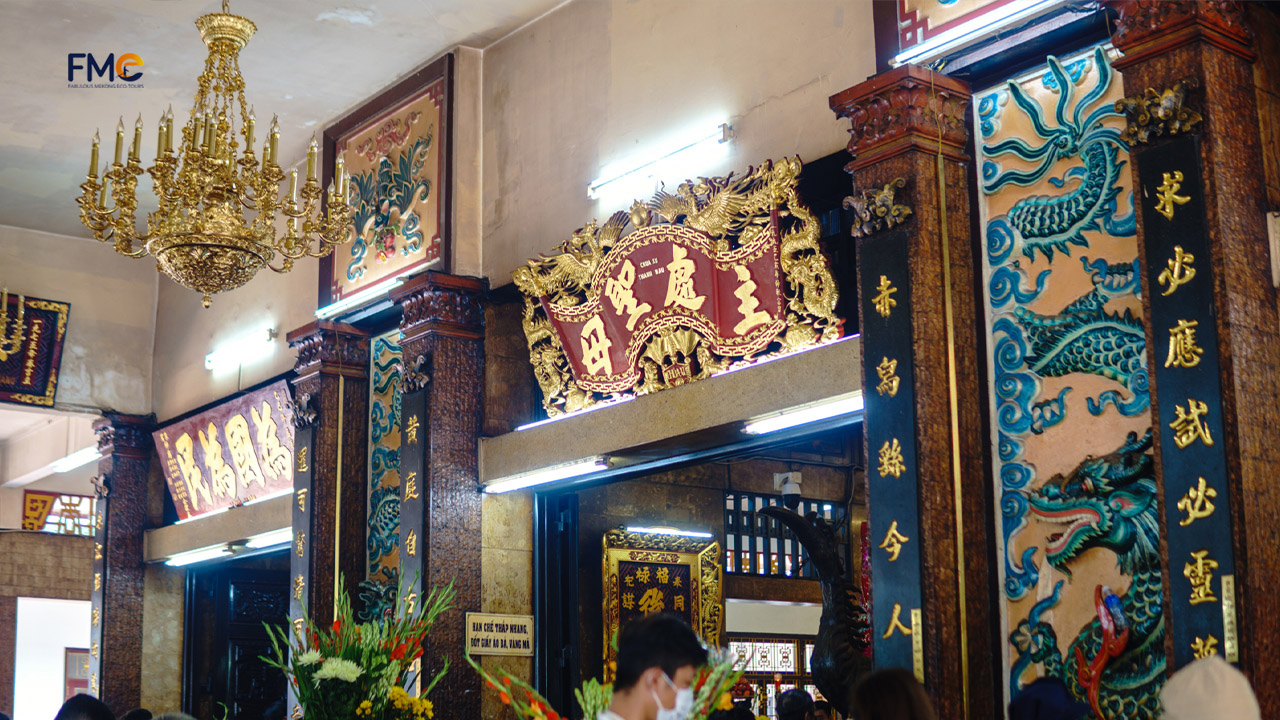
This magnificent religious complex, adorned with intricate Eastern-inspired architecture, has evolved from a humble thatched house into an awe-inspiring shrine that attracts nearly 3 million worshippers each year.
Visitors from all over the world come to pay their respects, especially during the annual Lunar New Year festival when over 190,000 visitors flock to the temple in just 3 days.
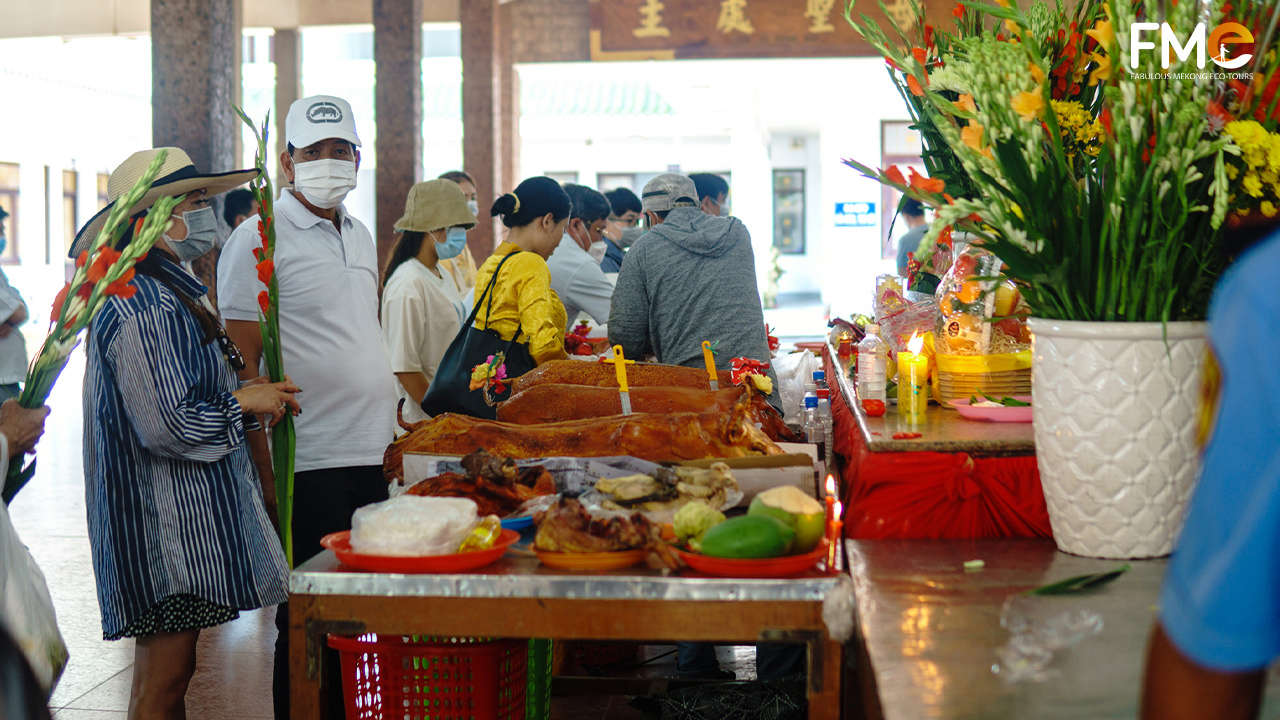
The Lady of the Realm Temple stands as a testament to the rich cultural heritage and spiritual devotion of Mekong Delta Vietnam.
How to get to The Holy Mother temple in An Giang
To get to The Holy Mother temple, you can first travel to Can Tho city (about 120km to Sam Mountain). From there, you can take a taxi or motorbike taxi to the temple, which is located on Sam Mountain, about 6 kilometers from the city center.
- FME Travel has prepared a detailed guide article: How to get to Can Tho.
- Or you can book a special travel itinerary: An Giang full day tour.
Then moved to Chau Doc city, An Giang province, Vietnam. From here, you can take a taxi or motorbike taxi to the temple located on Sam mountain, about 6 km from the city center.
The temple is easily accessible and a must-visit destination for those interested in exploring the cultural and spiritual traditions of Mekong Delta Vietnam.
- Address: Sam mountain, Chau Doc, An Giang, Vietnam
- Google Maps: https://goo.gl/maps/L3DHBTfdWQ2BGvru5
Who is Lady of the Realm (The Holy Mother)?
The Lady of the Realm, or Bà Chúa Xứ in Vietnamese, is a revered deity in the beliefs of the Khmer people in the Mekong Delta region. The statue of the Lady of the Realm on Sam Mountain is considered the oldest stone statue in Vietnam and holds the record for the most elaborate ceremonial robe, according to An Giang’s 2009 record book.
The statue is believed to be a representation of the Hindu god Vishnu, as described by French archaeologist Malleret in 1941. The statue is carved from sandstone, exquisitely crafted with a dignified and contemplative pose, and holds great artistic value. The statue was created in the late 6th century and may be a relic of the Oc Eo culture.
Writer Son Nam also wrote that the statue of the Lady of the Realm was a male Buddhist statue of the Khmer people, abandoned on Sam Mountain for a long time. Later, it was brought back by the Vietnamese and restored with paint, silk robes, and necklaces. Today, Lady of the Realm is worshiped and has many shrines dedicated to her due to the statue’s spiritual significance.
During festivals and holidays, many people come to pray and purchase offerings.
Mysterious stories about The Holy Mother Temple on Sam mountain
The Holy Mother temple, nestled in the Sam Mountain in Chau Doc, An Giang province, is a mystical and ancient temple with unique spiritual significance.
The temple has been preserved to this day with numerous fascinating and extraordinary legends, and it attracts a large number of pilgrims who believe that by sincerely praying to Bà Chúa Xứ, they will be blessed. Let’s explore the legendary stories of the The Holy Mother.
Legend associated with the merits of the Hero Thoai Ngoc Hau
Legend of the Sam Mountain and the Hero Thoai Ngoc Hau According to local folklore, the legend is closely linked to the accomplishments of Thoai Ngoc Hau, a hero who fought against foreign invaders on the western border.
As the story goes, when Thoai Ngoc Hau was battling foreign invaders, his wife prayed to Bà Chúa Xứ An Giang to protect her husband and the troops, and keep the village peaceful. After the victory, Thoai Ngoc Hau built a magnificent temple at the foot of the Sam Mountain to express his gratitude and chose April 24th of the lunar calendar as the annual day of worship.
Another theory suggests that Thoai Ngoc Hau built the temple at the urging of his wife. Initially, Thoai Ngoc Hau was ordered by the king to build the Vinh Te canal. However, the construction was fraught with difficulties, including natural disasters, floods, harsh weather, and even man-eating beasts that killed the workers.
Later, Bà Chúa Xứ appeared in his wife’s dream, and after the temple was built, everything went smoothly.
The story of Ba Chua Xu of Sam mountain against foreign invaders
Legend of Bà Chúa Xứ protecting against foreign invaders Between 1820 and 1825, the Siamese army invaded and pillaged the region. The local people had to flee to the mountains to escape the invaders.
On one occasion, the enemy troops tried to carry the statue of Bà Chúa Xứ down the mountain, but suddenly, the statue became so heavy that they could not lift it, and one of the soldiers broke his left arm and died instantly. From then on, the Siamese army became afraid and did not dare to return to the area again.
Does The Holy Mother Temple have a spirit?
Does The Holy Mother Temple have supernatural powers? According to legend, Bà Chúa Xứ protects the region and the people who worship her. The temple has become a place of miracles, where visitors come to pray for good health, happiness, and prosperity. Many have claimed to have received blessings after praying with a sincere heart.
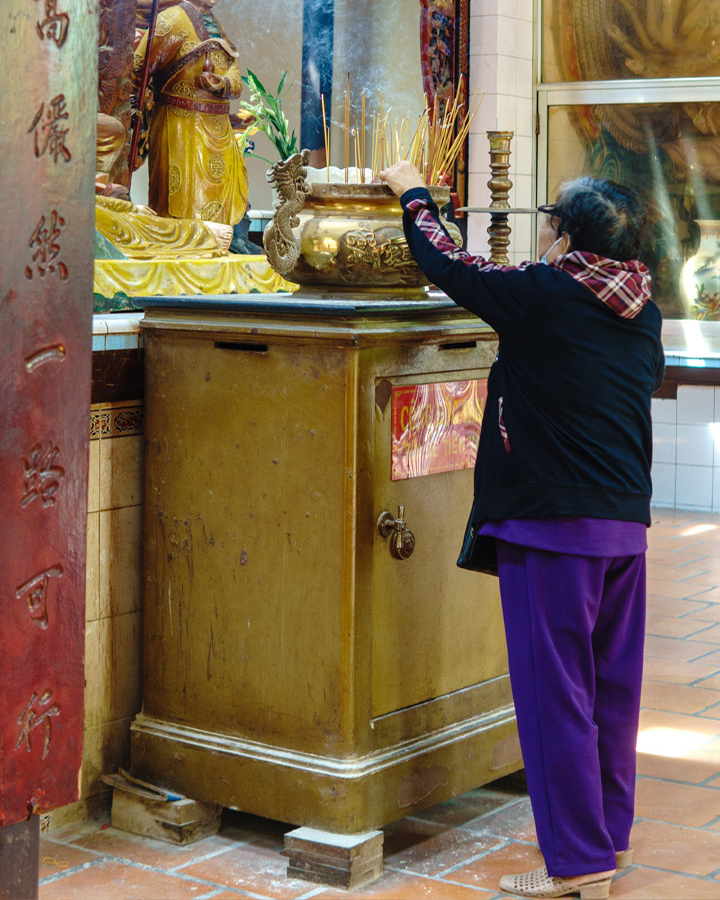
Whether one believes in the supernatural powers of Bà Chúa Xứ or not, the legend and the temple itself have become an essential part of the local culture and heritage.
Architecture of The Holy Mother Temple in An Giang
The architecture of Lady of the Realm Temple is nothing short of magnificent, resembling a dazzling palace in the Western region of Vietnam. Initially, the temple was built mostly out of wood and was quite simple. However, in 1870, the local community contributed funds to construct a grand temple with beautiful and artistic features.
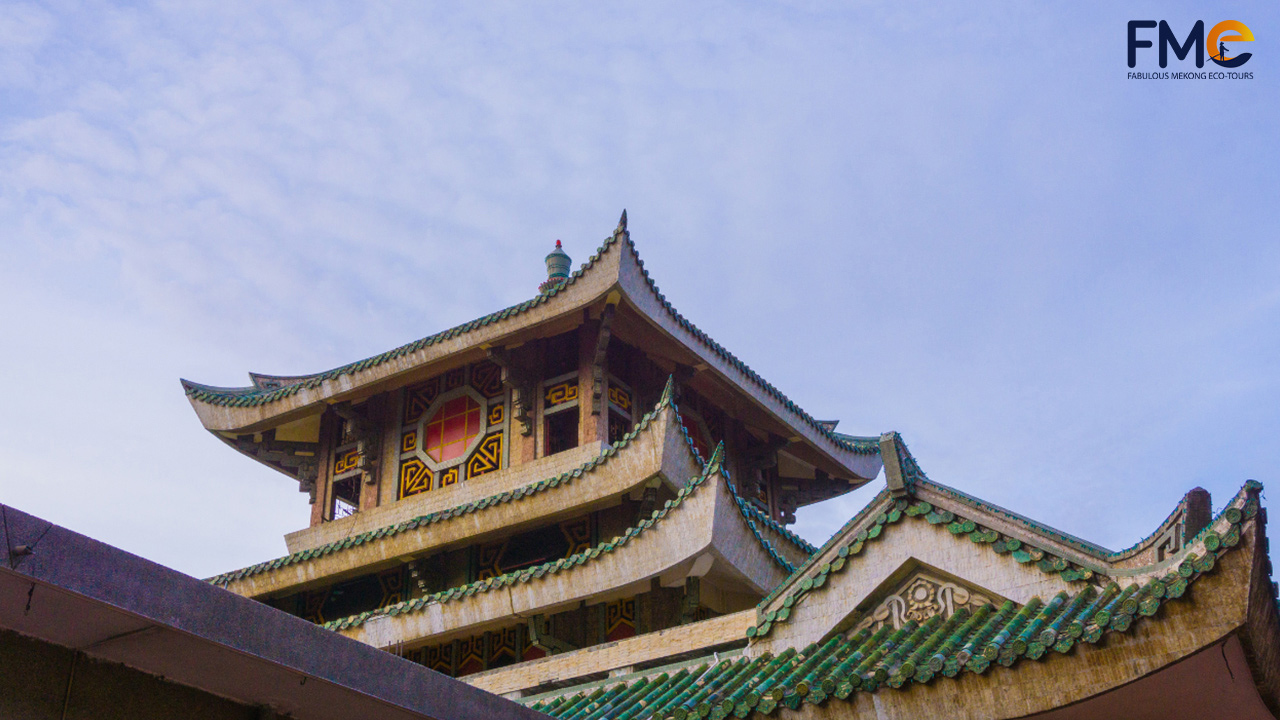
The cultural elements in the main hall of the temple are striking, with robust and beautiful deity statues holding up the beams. The frames, doors, and other adornments are exquisitely carved with intricate designs and decorations. Notably, the four old wooden pillars at the front of the main hall have been preserved since the original construction.
The temple underwent significant renovations in 1976, resulting in its current architectural design, which resembles the shape of the Vietnamese character “Quốc.” The structure features a lotus-shaped tower and a three-tiered roof with blue ceramic tiles.
The decorative motifs in the main hall draw inspiration from Indian art. The frames, doors, and other adornments are beautifully and intricately carved. Similarly to the old design, the four wooden pillars at the front of the main hall have been preserved.
The main hall consists of two layers. The inner layer is where The Holy Mother is worshipped with a stone statue placed on a high platform. Two white stone hawks, representing the holy symbols of The Holy Mother, flank the statue. At the entrance to the main hall, there are a pair of couplets that demonstrate the sacred power of The Holy Mother in blessing and protecting people.
To the right of the statue is a stone linga placed on a fragrance table, called the “Cậu” altar. To the left of the statue is a wooden statue with a yoni shape, placed on the “Cô” altar. The outer layer is the “Hội đồng” altar, flanked by two phoenix statues. To the left and right of the “Hội đồng” altar are the “Tiền hiền khai khẩn” and “Hậu hiền khai cơ” altars, respectively.
Ceremony of The Holy Mother in An Giang
The annual festival of The Holy Mother Temple – Lady Chau Doc takes place on what date? Every year, The Holy Mother Temple Festival at Nui Sam is held from the 23rd to the 27th of the lunar month, with the main ceremony taking place on the 25th.
Thousands of people flock to the ceremony to enjoy various fun activities such as Boi singing, martial arts performances, pentatonic music, lion dancing, and playing traditional board games. The ceremonies of worship in The Holy Mother Temple require solemnity and careful preparation.
Going to The Holy Mother An Giang ceremony is an opportunity to pray for good luck for the whole year, and we should not let any mistakes in the offerings cause any harm for the rest of the year. Let’s join FME Travel to discover the sacred worship ceremonies in The Holy Mother Temple, An Giang.
“Tắm Bà” (Bathing Lady Ceremony)
The “Tắm Bà” Ceremony at Ba Temple, An Giang The “Tắm Bà” ceremony is held at midnight on the 23rd of the lunar month and continues until the morning of the 24th. This ceremony is meticulously and carefully prepared and carried out with great solemnity.
The Tắm Bà ceremony usually lasts for about an hour. Afterward, the curtain is lifted for visitors to offer incense and ask for Lady’s blessings. The remaining bathwater is then mixed with water and distributed to the visitors.
Thỉnh Sắc Ceremony
Thỉnh Sắc at The Holy Mother Temple – Ba Nui Sam Temple Thỉnh Sắc ceremony, also known as the procession of the colors and the worship of Ong Thoai Ngoc Hau and his two wives, is held at 4 pm on the 25th. The procession takes place from The Holy Mother Temple to Thoai Ngoc Hau’s tomb with many meticulous and solemn rituals.
Túc Yết Ceremony
The Túc Yết at The Holy Mother Temple Temple – Chau Doc Temple is held at midnight on the 25th of the lunar month and continues until the morning of the 26th. The ceremony consists of two parts: the worship ceremony and the construction of the pavilion.
The offerings include a white pig, a plate of pig blood with small feathers, a tray of fruits, betel nuts, rice, and salt. After three rounds of gongs, drums, and music, the incense offering and tea offering ceremonies begin. Immediately after that is the “Xây Chầu Ceremony,” which starts with Boi singing.
Chánh Tế Ceremony
Chánh Tế Ceremony, also known as the Chanh Te Ceremony, is held at dawn on the 27th. The rituals are quite similar to those in the Feast Ceremony.
Hồi Sắc Ceremony
Hồi Sắc Ceremony takes place at around 3 pm on the 27th, right after the Chanh Te Ceremony. This is when the procession returns Ong Thoai Ngoc Hau and his two wives back to Son Lang. This marks the end of The Holy Mother Temple Ceremony at Sam mountain.
Nowadays, visitors come to The Holy Mother Temple to experience the vibrant culture, stunning scenery, and traditional worship ceremonies that embody the essence of Vietnamese culture.
FAQs
Is The Holy Mother temple in An Giang open to visitors year-round?
Yes, the temple complex is open daily throughout the year, except during the annual “Ba Chua Xu” Festival, when it may be closed for certain events.
What is the best time to visit The Holy Mother temple in An Giang?
The best time to visit the temple complex is during the annual “Ba Chua Xu” Festival, held in late April or early May each year.
How long does it take to explore The Holy Mother temple in An Giang?
The duration of the visit depends on the visitor’s interest and pace. On average, it takes about 1-2 hours to explore the temple complex.
What should visitors be aware of before visiting Mieu Ba Chua Xu?
Visitors should be respectful of the religious customs and traditions observed at the temple complex. Additionally, visitors should take caution while climbing the steep steps to the temple buildings, and avoid taking photographs in areas where it is not allowed.
TRAVEL STORIES AND NEWS
Explore Mekong Stories
The Most Popular Tours offered by FME Travel




